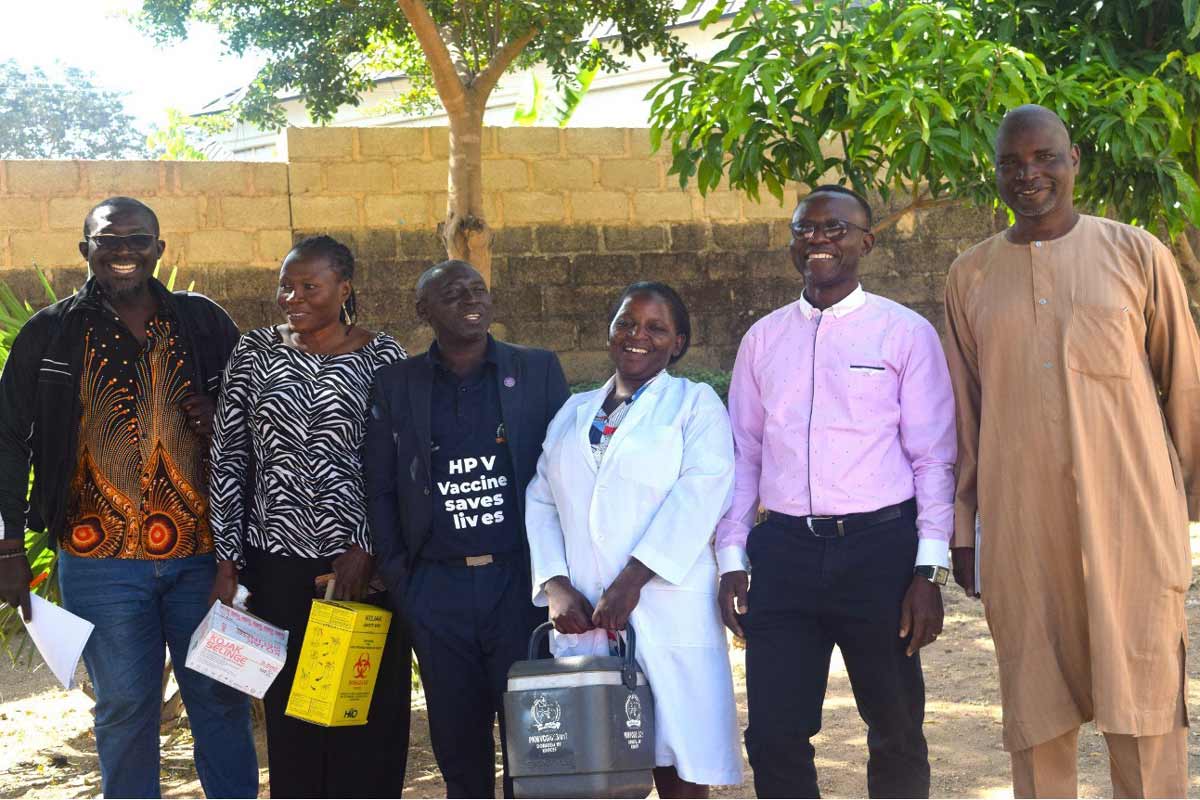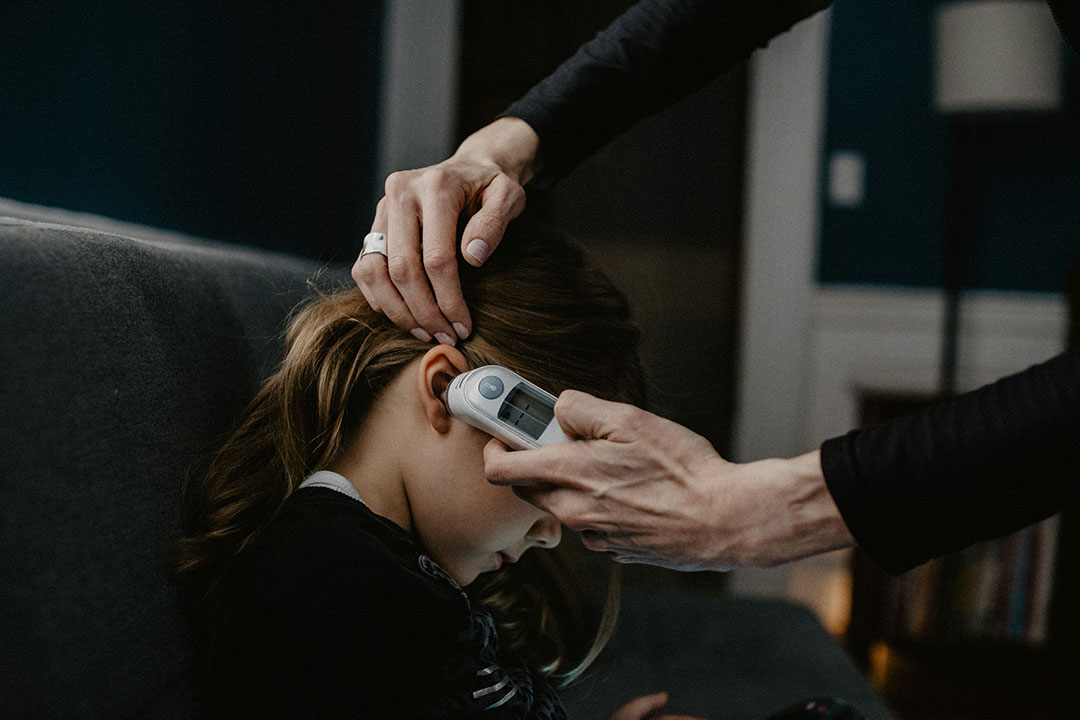A school principal’s fight against cervical cancer in Nigeria
A healthy body is essential for achieving life’s goals, Afodia Yusuf tells her girls, as she urges them to get their dose of the human papillomavirus vaccine.
- 14 March 2025
- 3 min read
- by Richard Adupong , JSI
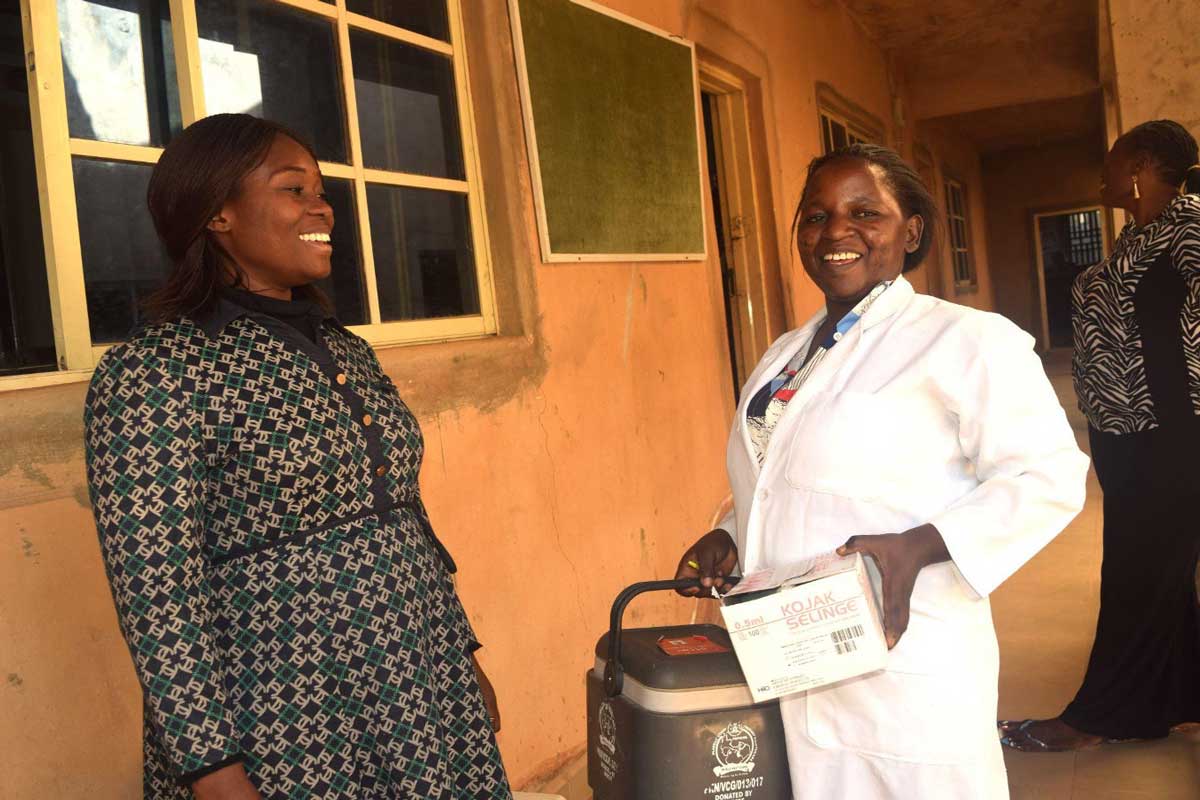
At St Christopher’s Anglican Primary School in Maiadiko, Nigeria, Afodia Yusuf transcends her role as principal for the sake of her students’ health and well-being. In Jos South Local Government Area, part of central Plateau State, where myths and fears about vaccines persist, Afodia is dedicated to changing the narrative, one conversation at a time.
Since 2024, human papillomavirus (HPV) vaccines have been available free of charge in Plateau State, part of a large-scale national introductory campaign that could protect a generation of Nigerian girls against cervical cancer. Yusuf’s mission is clear: ensure every girl in her community gets the cancer-blocking jab.
Blackboard or pulpit
Yusuf’s drive is rooted in a deep sense of duty. Relying on her education in public health leadership while balancing the roles as a pastor’s wife and community advocate, she blends her responsibilities to improve the health of those around her. Whether standing at the pulpit urging her congregation to adopt preventive health measures or meeting with hesitant parents to discuss the role of the HPV vaccine in preventing cervical cancer, Yusuf has no plans to sit back.
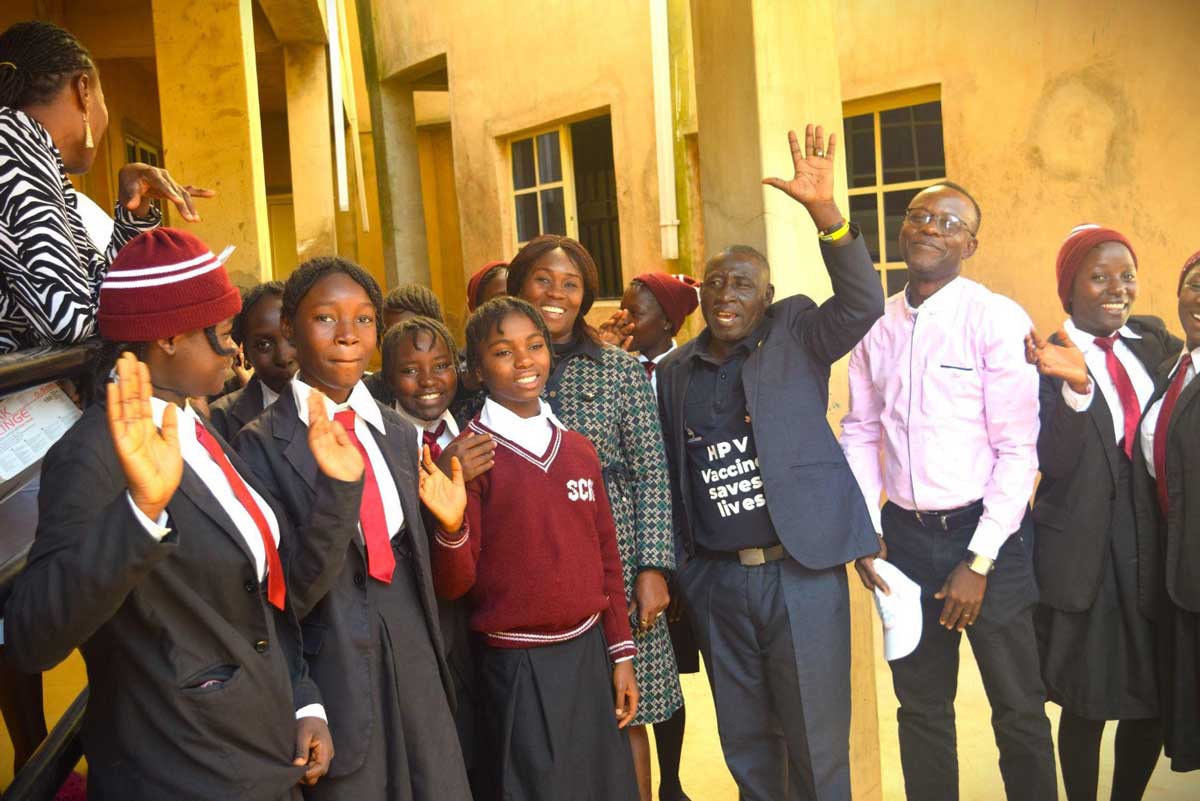
“I love seeing people healthy,” Yusuf says with conviction. “As a pastor’s wife, I’ve witnessed the heartbreak of losing loved ones to preventable diseases. It’s devastating, especially when I know many lives could have been saved with something as simple as a vaccine.” At her church, Yusuf invites medical professionals to educate congregants on vital health issues like cervical cancer. In her school, she partners with health workers to organise talks on hygiene, the dangers of self-medication and the life-saving power of vaccines.
Have you read?
When the Government of Nigeria-led HPV programme, supported by, among others, Gavi and the HPV Vaccine Acceleration Program Partners Initiative (HAPPI), reached her community, Yusuf stepped forward to collaborate.
She took it upon herself to bridge the gap between health workers and families. She wrote letters to parents and followed up with calls, speaking personally to those unsure about the vaccine. “Some students didn’t deliver the letters, but those calls made all the difference,” Yusuf reflects with a smile.
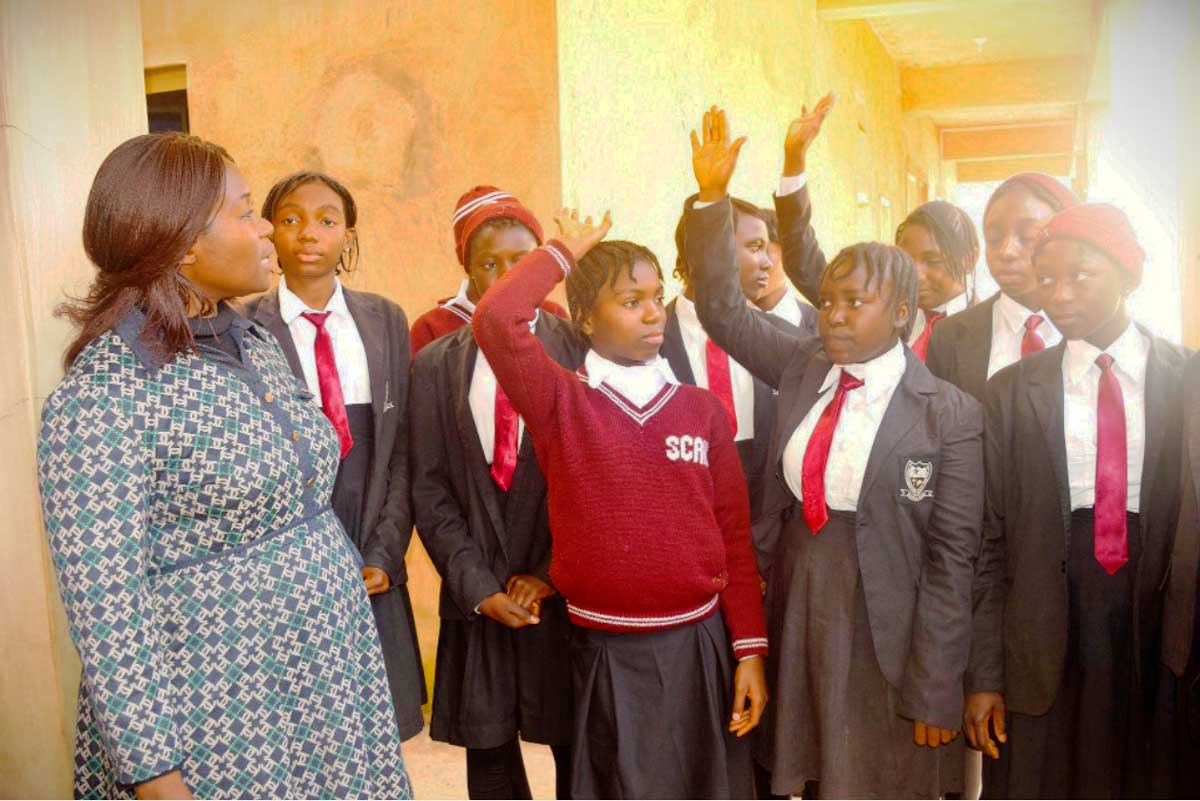
Majority protected, and not stopping yet
Her persistence has paid off. Today, the majority of eligible girls at St Christopher’s are vaccinated against HPV, a leading cause of cervical cancer. But for Afodia, this is just the beginning. “I plan to involve the Parent-Teacher Association more in discussions about health interventions,” she shares. “A sound, healthy body is essential for learning and achieving life’s goals.”
Yusuf’s impact extends beyond her school. In Du B ward of Jos South LGA, over 6,000 girls have been vaccinated – nearly double the target – thanks to the tireless efforts of grassroots champions like her working in partnership with HAPPI. These extraordinary results are a testament to the power of local leadership to drive lasting change.
Funded by the Gates Foundation and implemented in Nigeria by JSI and the Clinton Health Access Initiative, HAPPI has helped vaccinate more than 12 million adolescents across Nigeria, ensuring them brighter, healthier futures. This includes the girls of Jos South, who will now grow up free from the threat of cervical cancer.
